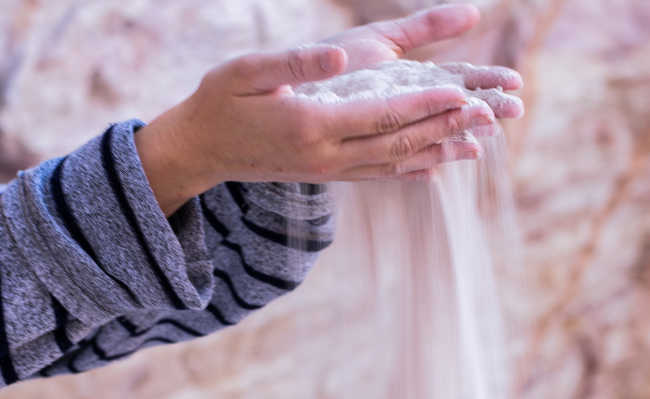Aromatherapy is a natural remedy for rhinitis. Understand
Use of essential oils is an effective alternative therapy for the treatment of rhinitis

Rhinitis is an inflammation of the mucous membranes of the nasal cavities caused by an exaggerated reaction of the immune system to an allergen (which causes allergy) or by the anatomy of the individual's nasal cavity. Rhinitis can be confused with colds and flu, however, the latter two are caused by viruses.
rhinitis symptoms
Anyone who suffers from rhinitis knows very well that the discomforts are numerous: runny nose, insensitivity to odors, irritation, nasal obstruction, itching, watery eyes and so on. In more severe conditions, rhinitis can even develop into sinusitis. But the good news is that there are ways to alleviate these symptoms, and aromatherapy is one of them.
rhinitis medicine
Aromatherapy is an alternative therapy used to treat various physical and emotional ailments. According to the Brazilian Association of Complementary Medicine (ABMC), aromatherapy is a curative treatment that uses the smell and properties of essential oils, being a natural, alternative, preventive and also curative medicine. In the case of rhinitis, aromatherapy has been shown to be an effective alternative for treating its symptoms. To learn more about aromatherapy, check out the article "What is aromatherapy and what are its benefits?". To learn about the benefits of essential oils, visit the article "What are essential oils?".
Essencial oils
Essential oils are the base product of aromatherapy; they can intervene in certain symptoms quickly and effectively, demonstrating anti-inflammatory and immunomodulating action, resulting in a significant improvement in the immune response.Some essential oils also have mucolytic, bronchodilator, expectorant and anti-allergic action.
what to use
- For nasal obstruction, essential oils of peppermint, eucalyptus globulus, rosemary QT camphor and rosemary QT cineol can be used.
- Those who have difficulty sleeping can use the essential oils of French lavender, sage clarifies and bergamot.
- For itchy nose and throat, essential oils of white spruce, eucalyptus globulus and eucalyptus radiata can be used.
- For headaches, the essential oils of peppermint, French lavender and basil are recommended.
- To relieve muscle pain, essential oils of sweet birch, wintergreen, peppermint and rosemary QT camphor can be used.
- Those who feel fatigue or malaise can also use peppermint, rosemary QT camphor and rosemary QT cineol.
But beware: it is not recommended to use essential oils of peppermint and eucalyptus globulus in children under two years old, nor to use the essential oil of rosemary QT camphor in pregnant women and people with hypertension.
How to use
To enjoy the benefits of the essential oils of your choice, apply three to ten drops of the essential oils in a bowl of hot water and, placing your face above the bowl, cover your head with a towel and inhale the steam for a minute or more.
Complementary actions
In addition to treating the symptoms of rhinitis, it is necessary to investigate what caused it. If it is an anatomical problem of the nasal cavities, it is necessary to talk to a doctor in search of the best alternative, and if so, even surgery.
If the causes of rhinitis are allergens, try to investigate with your doctor what these agents are to eliminate them from your daily life. Rhinitis can usually be caused by inhaling pollen, smoke, chemicals, dust, ingestion of cow's milk, egg, soy, wheat, fish, shellfish, among others. Even skin contact with chemical substances such as perfumes, creams, latex, plants, insects can trigger rhinitis. By treating the symptoms and investigating their causes, it is very likely that you will be successful in treating rhinitis.










